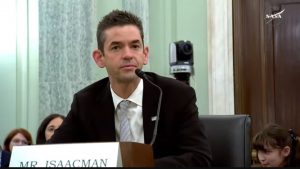Europe’s Vega C rocket experiences failure on second mission, resulting in loss of two satellites
The Vega C rocket launched on time on December 20, 2022 at 10:47 pm in French Guiana. The launch, the mission, and the separation of the first stage (P120C) all went as planned. However, about 144 seconds after the lift-off, a drop in pressure was noticed during the ignition of the second stage’s (Zefiro 40) engine, causing the mission to end prematurely. As per protocol, the French space agency (CNES) gave the order to destroy the rocket to ensure safety; there were no injuries or property damage.
Vega is a European Space Agency (ESA) small-class launch vehicle for the deployment of small payloads into low Earth orbit. It was developed in the 2000s as a lightweight, low-cost alternative to other European launch vehicles. The Vega C, a upgraded version of the Vega rocket, made its inaugural flight on July 16, 2022, successfully deploying main payload LARES-2, and Italian scientific mission.
Vega C specs
The Vega C is a four-stage rocket that stands 31 meters (101 feet) tall and has a diameter of 3 meters (9.8 feet). It can lift payloads of up to 4,000 kg (8,818 lbs) into low Earth orbit and 2,500 kg (5,511 lbs) into a Sun-synchronous orbit. It is powered by solid and liquid propulsion systems and uses a modular design, allowing it to be customized for different missions.
The Vega C has a payload fairing with a diameter of 2.6 meters (8.5 feet) and a length of 6.9 meters (22.6 feet). It can accommodate a variety of payloads, including Earth observation satellites, science and technology missions, and small spacecraft for commercial customers.
Investigation to be conducted
The rocket’s second stage, a solid motor called the Zefiro-40, malfunctioned minutes after lift-off. The failed mission resulted in the destruction of two satellites meant to complete the Pléiades Neo Earth-imaging constellation, owned and operated by Airbus. Vega-C will be grounded while an investigation into the failure is conducted, which could take several months.
Italy’s Avio manufactures the solid motor, Zefiro-40 and shares in Avio, fell as much as 11% after the second launch of the recently upgraded Vega C version – and the first commercial mission – ended in failure.

